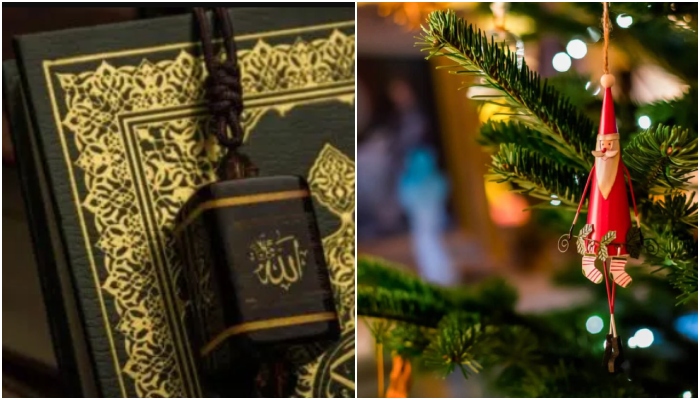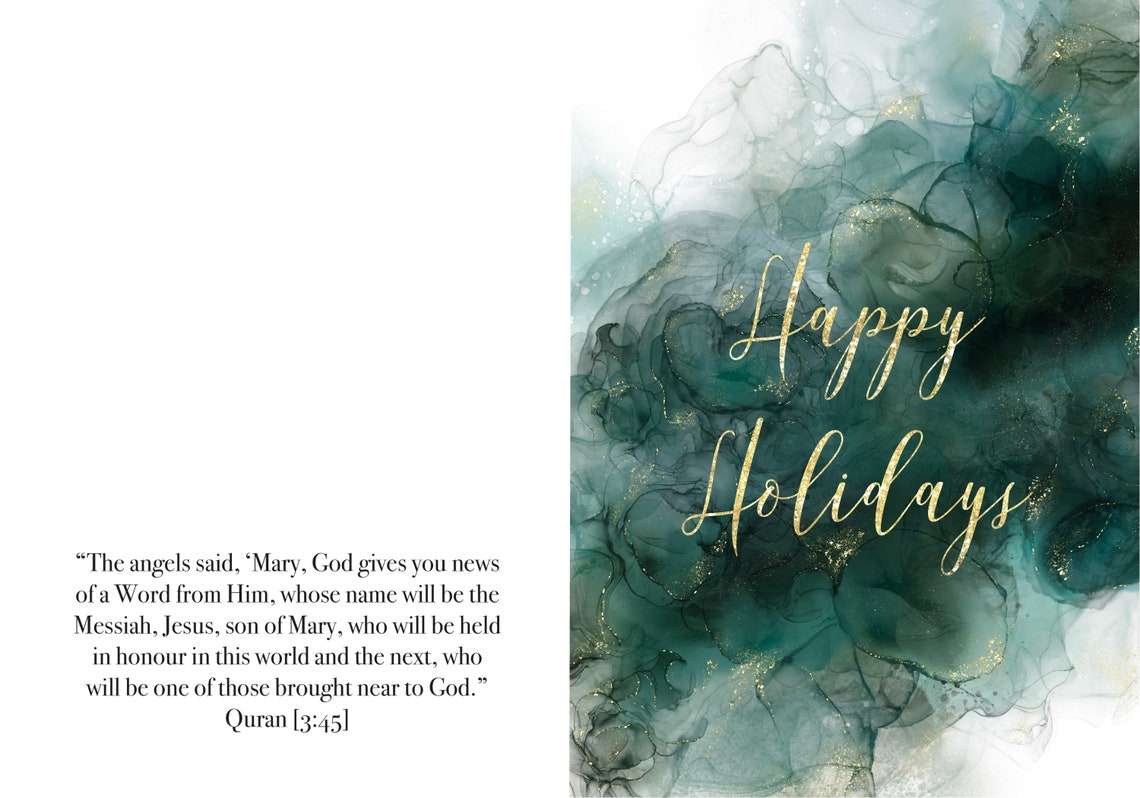Understanding the Significance of Christmas Greetings in Islam
Related Articles: Understanding the Significance of Christmas Greetings in Islam
Introduction
With enthusiasm, let’s navigate through the intriguing topic related to Understanding the Significance of Christmas Greetings in Islam. Let’s weave interesting information and offer fresh perspectives to the readers.
Table of Content
Understanding the Significance of Christmas Greetings in Islam

The exchange of greetings, particularly during festive periods, is a common practice across cultures and religions. While Christmas is a Christian holiday celebrating the birth of Jesus Christ, Muslims often find themselves interacting with friends, colleagues, and neighbors who celebrate this occasion. This raises the question: how do Muslims approach the greeting "Merry Christmas" within the context of their own faith?
The Islamic Perspective on Christmas
Islam recognizes Jesus Christ (Isa al-Masih) as a prophet and messenger of God, similar to other prophets like Moses (Musa) and Muhammad (peace be upon them all). However, Islam does not celebrate Christmas as a religious holiday. Muslims believe that Jesus was born miraculously through the Virgin Mary, but they do not believe he was divine. They also do not accept the concept of the Trinity, which is central to Christian theology.
Therefore, the meaning of "Merry Christmas" within the Islamic context is primarily understood as a gesture of goodwill and respect towards those celebrating the holiday. It represents an acknowledgment of the cultural significance of Christmas and a desire to foster positive relationships with those who observe it.
Interpretations of the Greeting
The interpretation of the "Merry Christmas" greeting within the Islamic community is diverse, with varying opinions on its appropriateness. Some Muslims may choose to refrain from using the greeting altogether, believing it to be incompatible with their faith. Others may offer alternative greetings like "Happy Holidays" or "Season’s Greetings," which are more inclusive and avoid religious connotations.
However, many Muslims, particularly in multicultural societies, understand the greeting as a simple expression of social courtesy and goodwill, devoid of any religious implications. They view it as a way to foster harmony and understanding between different faiths.
The Importance of Respect and Understanding
The key to navigating this complex issue lies in understanding and respecting the perspectives of both Muslims and Christians. It is crucial to remember that the "Merry Christmas" greeting is primarily a social practice, and its interpretation can vary depending on individual beliefs and cultural contexts.
FAQs on the Significance of Christmas Greetings in Islam
1. Is it permissible for Muslims to say "Merry Christmas"?
The permissibility of using the greeting "Merry Christmas" is a matter of individual interpretation within Islam. While some Muslims may choose to avoid it, others view it as a simple expression of goodwill and respect, devoid of any religious implications.
2. What are some alternative greetings Muslims can use?
Muslims can use alternative greetings like "Happy Holidays," "Season’s Greetings," or "Warm Wishes" to express their goodwill during the Christmas season without engaging with religious connotations.
3. How can Muslims foster positive relationships with Christians during Christmas?
Muslims can foster positive relationships with Christians by engaging in respectful conversations, understanding their traditions, and participating in shared cultural events that celebrate the spirit of the season, such as holiday gatherings or charitable initiatives.
4. Should Muslims avoid participating in Christmas festivities altogether?
The decision to participate in Christmas festivities is a personal one for each Muslim. Some may choose to avoid events that are explicitly religious in nature, while others may participate in secular celebrations that emphasize the spirit of generosity and goodwill.
5. What are the core values of Islam that guide Muslim interactions with other faiths?
Islam emphasizes the importance of respect, tolerance, and peaceful coexistence with people of all faiths. The Quran teaches Muslims to engage in respectful dialogue and avoid disparaging other religions.
Tips for Navigating the "Merry Christmas" Greeting
- Be mindful of individual preferences: Recognize that different Muslims may have varying opinions on the "Merry Christmas" greeting.
- Offer alternative greetings: If unsure, choose inclusive greetings like "Happy Holidays" or "Season’s Greetings."
- Focus on goodwill: Regardless of the chosen greeting, prioritize expressing genuine warmth and respect.
- Engage in open dialogue: If unsure, initiate a conversation to understand the other person’s perspective.
- Promote understanding and tolerance: Encourage respectful interactions and foster positive relationships between different faith communities.
Conclusion
The "Merry Christmas" greeting presents a unique opportunity for Muslims to demonstrate their respect for diverse cultural practices and foster positive relationships with those who celebrate Christmas. It is essential to navigate this issue with sensitivity, understanding, and a focus on promoting interfaith harmony. While Muslims may not celebrate Christmas as a religious holiday, they can embrace the spirit of goodwill and generosity that the season represents, fostering a culture of mutual respect and understanding within their communities.








Closure
Thus, we hope this article has provided valuable insights into Understanding the Significance of Christmas Greetings in Islam. We appreciate your attention to our article. See you in our next article!